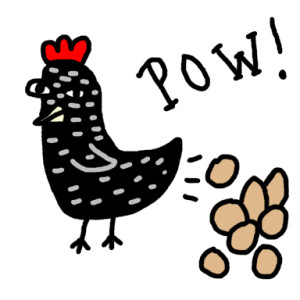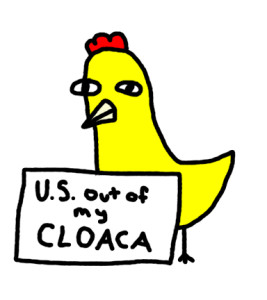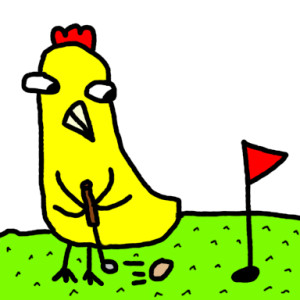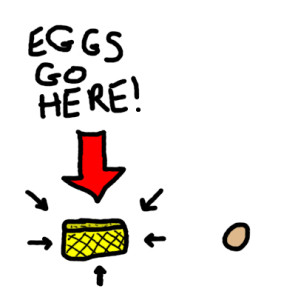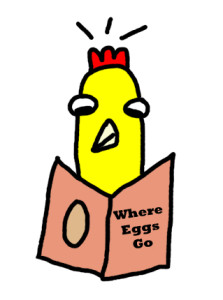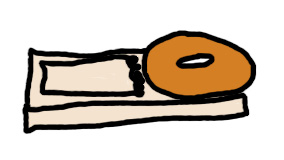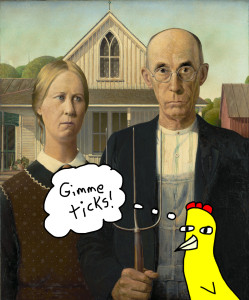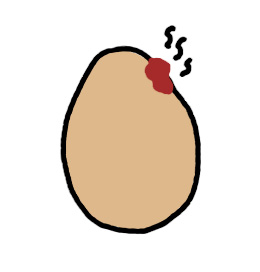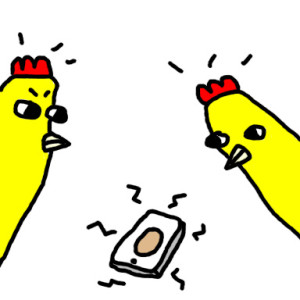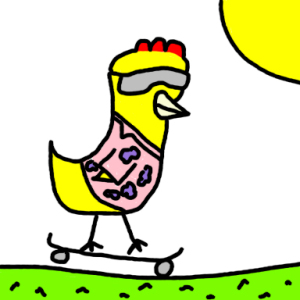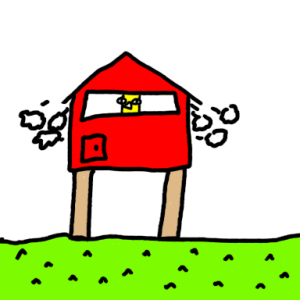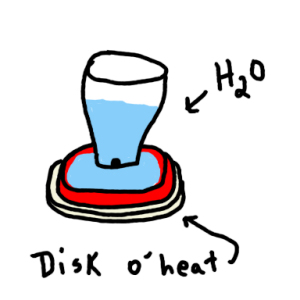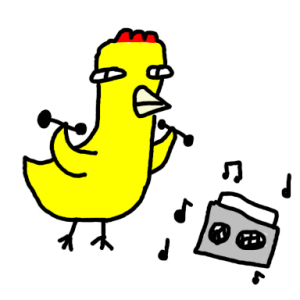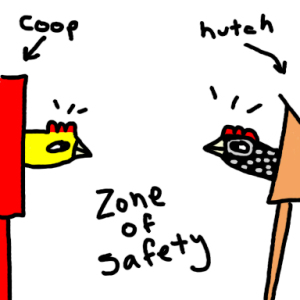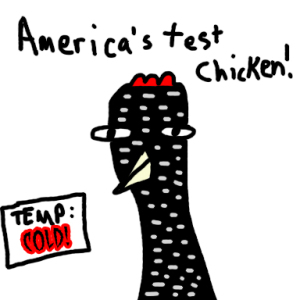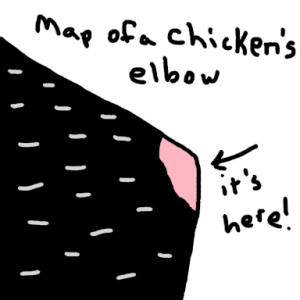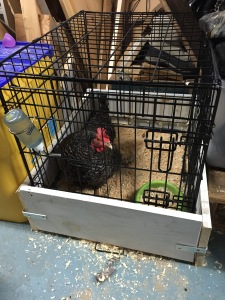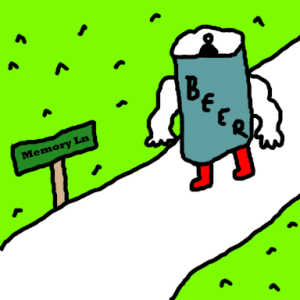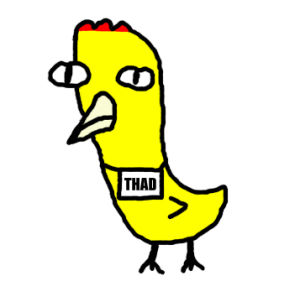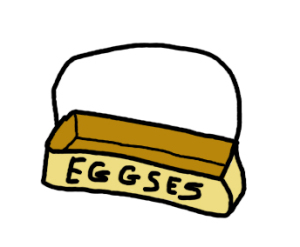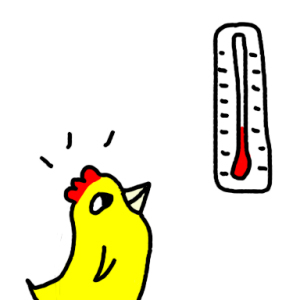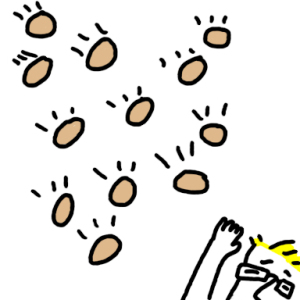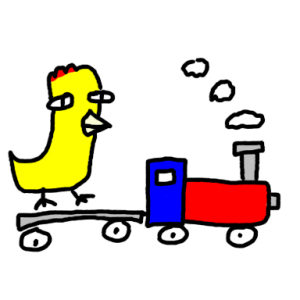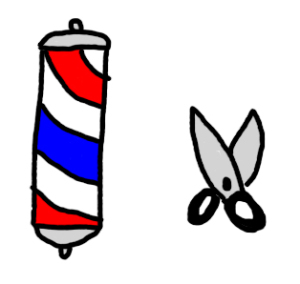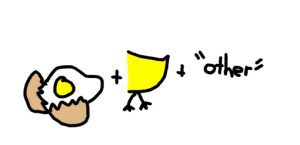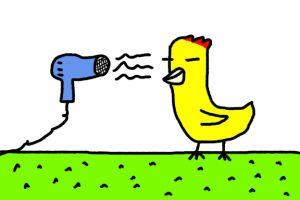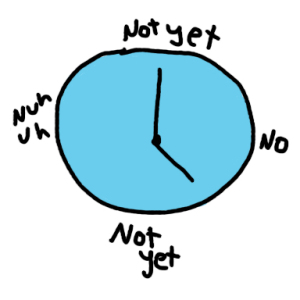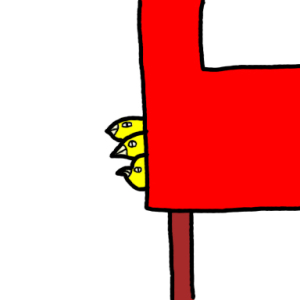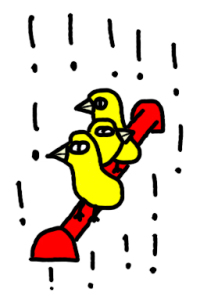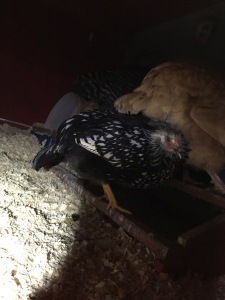Baby Eggs
Friday, January 23rd, 2015If you’ve been paying any attention to me at all lately, you’ve probably noticed that I’ve been a little concerned regarding my egg supply this winter. If you haven’t been paying attention to me, well, I suppose you missed that part. Take a moment and look over the last couple of posts, and then come back. It’s fine. I’ll wait.
Ok, now that you’re all caught up, things are getting slightly better. Boss Chicken, the Old Faithful of chickens, continues to chug along, producing an egg every other day, even though I had to move her back inside after winter remembered it was winter and got cold again. To make up for this inconvenience, I give her quite the feast every morning. A scoop of layer feed, a handful of scratch, a splash of apple cider vinegar, topped off with a blob of yogurt, and our girl is dining in style. It’s the least I can do. I’d be pretty bummed if I was inside all the time, but I think she’s much better off protected from the elements. If we ever get some days above freezing, I’ll bring her back out, pronto. The important thing is that she started laying again, and doesn’t seem to show any signs of stopping.
Meanwhile, the other grownup chickens maintain their vow of eggless silence. Henny Penny had a really long molt this year, but I think the end may be in sight. The Mandrell Sisters look like they’ve finished molting, but are also holding out on me. It’s been pretty cold, and laying eggs is pretty energy intensive. I’d actually prefer they stay warm rather than lay eggs, so they’re off the hook for the time being. But sooner or later I’m going to suspect they’re staging a “job action.” Or you know, getting older.
So that brings us to Steve, John, and Suzy Creamcheese Junior. What’s their deal? They’re “of age,” so shouldn’t they be laying eggs? Probably. Could it be a case of nerves? No positive egg-laying role models? Just plain lazy? I’d been checking all the inappropriate spots for eggs to get laid by beginners, and I hadn’t found any. A popular place is always at the far end of the run, under the coop, in the furthest corner. A lot of the early eggs of the grownups ended up in there, and I had to keep a golf club handy to reach all the way under there and roll the eggs back, as gently as possible. Somehow I never broke one, and that’s the most use my golf clubs have gotten in years. But I looked every day, and the outside areas were eggless.
I had dusted off my “decoy eggs” from the first generation and put them in the nesting buckets as soon as the n00bs were freely mixing with the old guard. These are plastic Easter eggs filled with dirt (for heft) and glued shut. It doesn’t matter that they’re the wrong color, it’s just supposed to give the chickens the idea of where eggs go. One night someone had knocked one out of one of the buckets, but hadn’t left anything in return. That seemed promising, but was still a false start. And come on, put things back where you found them, everyone.
And then it happened. I opened the coop in the morning to pile chips on the previous evening’s poops, and there, under the roost, somehow un-pooped on, was a tiny egg. Not like, quail egg tiny, but smaller than what I’m used to. The n00bs are still little, so it makes sense their eggs might not be full-sized. While I didn’t entirely approve of the setting, at least it required little effort to get at the egg. Two days later, another egg appeared in the same spot. I considered taking it from under the roost and putting it in the nesting bucket to emphasize the point about where eggs are supposed to go, but I figured it would freeze there, since it was another cold day. I brought it inside and waited. Two days later, there was another egg, but this time, in the bucket! Someone (and I don’t know why, but I assume only one of them is laying right now) is getting the hang of it. She kicked almost all the chips and the decoy egg out of the bucket, but she’s still learning. Hopefully, when the others are ready, they’ll see what she’s been doing, and everything will end up in its proper place. If not, I’m used to it, and chickens do figure stuff out eventually. I’ve been this patient waiting for the eggs, think of how patient I can be when I’m actually getting them.
(CREDITS: Theme music: Chicken In The Barnyard by Fireproof Babies, Music Bed: King Of The Air March by Charles Daab)

